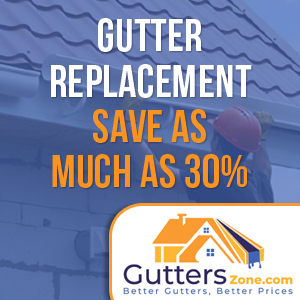
9 Things You Do Not Want to Overlook in a Home Inspection
A home inspection is an integral part of the home-buying process, offering a critical insight into the property’s condition before you make one of the largest investments of your life. While it’s tempting to focus on the aesthetics and the potential of your future home, certain critical elements should never be overlooked during an inspection. Here, we’ll explore 9 essential aspects that demand your attention, including the often-underestimated gutter and gutter systems, to ensure your investment is sound and secure.
The Value of a Comprehensive Home Inspection
A detailed home inspection is invaluable, providing peace of mind and protecting your investment. It’s a critical step in the home-buying process, ensuring you’re fully aware of the condition of your potential new home. Coupled with regular maintenance and a proactive approach to repairs, you can enjoy your home for years to come without unexpected surprises or costly emergencies.
Buying a home is an exciting journey, filled with hopes and dreams about the future. However, it’s crucial to approach this process with a keen eye for detail and an understanding of what makes a home not just beautiful, but also structurally sound and functionally efficient. A thorough home inspection can reveal hidden issues that could cost you significantly in repairs down the line. Let’s delve into the 9 critical elements you should never miss during a home inspection, ensuring your new home is a haven, not a headache.

1. Foundation and Structural Integrity
The foundation and structure of a home are its bedrock. Look for signs of foundational issues, such as cracks in the walls, uneven floors, and doors or windows that don’t close properly. These could indicate settling or movement of the foundation, which can lead to major structural problems.
2. Roof Condition
The roof protects the home from the elements and is often a costly feature to repair or replace. Inspect the roof for missing, loose, or worn shingles and signs of water damage. A damaged roof can lead to leaks, mold, and structural damage if not addressed promptly.
3. Plumbing System
Water damage can be a silent destroyer in a home. Check all faucets, showers, and toilets for leaks and proper drainage. Look under sinks for signs of water damage or mold. Ensure the water heater is in good condition and up to code.
4. Electrical System
An outdated or improperly installed electrical system can pose a serious safety hazard. Verify that the electrical panel is properly labeled, and there are no signs of overloaded circuits. Check outlets and switches for functionality and safety.
5. HVAC System
Heating, ventilation, and air conditioning (HVAC) systems are key to home comfort. Ensure the system is functioning efficiently, and there are no unusual noises or smells when it operates. The age of the system can also affect its efficiency and the need for replacement.
6. Windows and Doors
Windows and doors contribute to a home’s energy efficiency. Check for drafts, difficulty in opening or closing, and damaged seals, which can lead to higher energy bills and reduced comfort levels.

7. Gutters and Gutter Systems
Gutters play a crucial role in directing rainwater away from the foundation, protecting the structural integrity of the home. Inspect the gutters for blockages, damage, or improper installation. Ensure downspouts direct water away from the foundation effectively.
Why Gutters Matter
Neglected gutters can lead to water damage on the roof, siding, and foundation. They can also become a breeding ground for pests. Ensuring the gutters are in good condition can prevent costly repairs to other parts of the home.
Cost of Gutter Replacement
The cost of replacing gutters varies depending on the material (aluminum, vinyl, steel, etc.) and the size of your home. On average, homeowners can expect to spend between $1,000 to $5,000 for a full gutter replacement. Investing in high-quality gutters and professional installation can save money in the long run by preventing water-related damage to the home.
8. Insulation and Ventilation
Proper insulation and ventilation in the attic and crawl spaces are vital for energy efficiency and preventing moisture buildup, which can lead to mold and wood rot. Check that insulation is adequate and ventilation is unblocked.
9. Potential Environmental Hazards
Be aware of potential environmental hazards such as lead paint, asbestos, radon, and mold. These can pose serious health risks and require professional remediation to address safely.

Ensuring a Comprehensive Home Inspection
Given the importance of each of these elements, ensuring that your home inspection is as thorough as possible is crucial. Here are additional steps and considerations to maximize the effectiveness of your home inspection:
Choose the Right Inspector
Select a licensed, experienced home inspector with a strong reputation. Look for certifications from recognized industry organizations and ask for references. An inspector with experience in your specific type of home or area can provide invaluable insights.
Be Present During the Inspection
If possible, attend the home inspection. This allows you to see issues firsthand, ask questions, and gain a deeper understanding of the condition of the home. It’s also an opportunity to learn about essential maintenance tasks and systems in your new home.
Understand the Scope of the Inspection
A standard home inspection covers many aspects of a home’s condition but may not include specialized testing for mold, radon, or pests. Depending on the age and location of the home, consider additional inspections to ensure all potential issues are identified.
Follow Up on Inspection Findings
After the inspection, review the report carefully and prioritize issues based on their severity and cost to address. Use this report as a negotiation tool with the seller to have repairs completed, adjust the sale price, or possibly terminate the contract if significant problems are discovered.

Additional Tips for Maintaining a Healthy Home Post-Purchase
After purchasing your home, regular maintenance is key to preventing the issues outlined in the inspection from arising in the future:
Schedule Regular Maintenance Checks
Just like a car, a home requires regular maintenance to stay in good condition. Schedule annual checks for your HVAC, roofing, and plumbing systems. Clean gutters and downspouts regularly to prevent blockages and water damage.
Invest in Quality When Replacing or Repairing
When it comes time to replace or repair elements of your home, choose quality materials and professional installation. This is especially true for critical systems like roofing and gutters, where subpar materials or workmanship can lead to greater costs down the line.
Stay Informed and Proactive
Educate yourself about the common issues homes in your area face and the signs of potential problems. Being proactive about repairs and maintenance can prevent minor issues from becoming major expenses.
Build a Relationship with Trusted Professionals
Having a network of trusted professionals (plumbers, electricians, roofers) you can call for advice or service can make home maintenance easier and more effective. Building these relationships over time ensures you have reliable help when you need it.

The Vital Role of Gutters in Home Maintenance
Maintaining your gutters is often overlooked in the grand scheme of home maintenance. However, gutters play a pivotal role in protecting your home from water damage, preserving its structural integrity, and ensuring its longevity. Gutters are designed to channel rainwater away from your home’s foundation, walls, and landscaping. They serve as the frontline defense against water damage, which can lead to a myriad of problems if left unchecked. Here’s how maintaining your gutters directly impacts the maintenance of your entire home:
Protecting the Foundation
Water is a foundation’s worst enemy. Without properly functioning gutters, water can pool around the base of your home, leading to erosion, basement flooding, and even foundation cracking or settling. Regular gutter cleaning and repair ensure water is efficiently directed away from your home, safeguarding the foundation from water-related issues.
Preventing Water Damage to Siding and Walls
Clogged or damaged gutters can cause water to overflow and run down the sides of your home. Over time, this can lead to damage to your siding, exterior walls, and even interior walls. Water seepage can cause paint to peel, siding to warp, and mold to grow, compromising both the appearance and structural integrity of your home. Routine gutter maintenance prevents these overflow issues, protecting your home’s exterior and interior from water damage.
Preserving Landscaping and Preventing Erosion
Gutters also play a crucial role in preserving your landscaping and preventing soil erosion around your home. Without effective gutters and downspouts, rainwater can wash away soil, destroy plants, and even lead to landscape erosion. By ensuring that gutters are clear and water is channeled appropriately, you can maintain the aesthetic and health of your landscaping, contributing to your home’s overall curb appeal.
Mitigating the Risk of Roof Damage
Clogged gutters can lead to water backflow, which can seep under your roof shingles, causing leaks and damage to the roof structure. This not only shortens the lifespan of your roof but can also lead to costly repairs. Regular gutter maintenance prevents these issues by ensuring water flows freely away from the roof, thus extending its lifespan and maintaining your home’s primary defense against the elements.

Cost-Saving Benefits of Gutter Maintenance
Investing in regular gutter maintenance can lead to significant cost savings over time. By preventing foundation issues, water damage to walls and siding, erosion, and roof damage, you avoid the hefty repair bills that these problems can incur. Furthermore, well-maintained gutters extend the lifespan of various components of your home, delaying the need for expensive replacements.
How to Maintain Your Gutters Effectively
- Regular Cleaning: Clean your gutters at least twice a year, and more frequently if you have many trees around your home. Remove leaves, twigs, and debris that can clog your gutters.
- Inspect for Damage: While cleaning, inspect your gutters for signs of wear, holes, rust, or damage. Prompt repairs can prevent larger issues down the line.
- Ensure Proper Drainage: Check that your downspouts are directing water away from your home’s foundation effectively. Consider installing gutter extensions if necessary.
- Consider Gutter Guards: Gutter guards can reduce the amount of debris that enters your gutters, decreasing the frequency of cleanings and protecting against clogs.
While the home-buying process is filled with anticipation and dreams of the future, it’s imperative to approach it with diligence and attention to detail. A comprehensive home inspection covering these critical elements can reveal hidden problems, saving you from future expenses and ensuring your new home is safe, sound, and secure. Remember, investing in areas like gutters and gutter systems not only protects the structural integrity of your home but also saves you from potential costly repairs. As you move forward on your home-buying journey, keep these essential inspection points in mind to make informed decisions and protect your investment. Should your home buying or home maintenance journey lead you to gutter installation, Gutters Zone is here to help you get connected with free, local estimates for your gutter maintenance journey.
